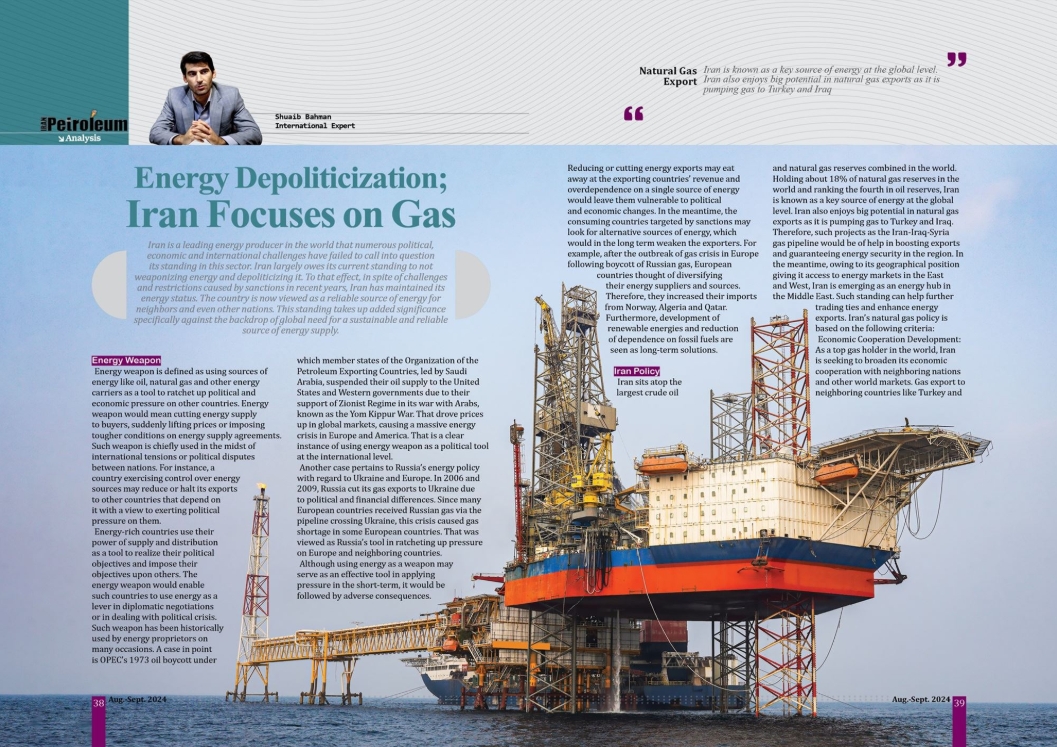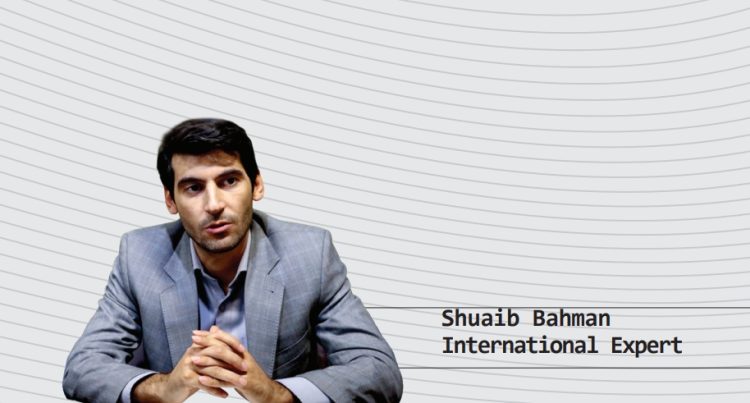Iran is a leading energy producer in the world that numerous political, economic and international challenges have failed to call into question its standing in this sector. Iran largely owes its current standing to not weaponizing energy and depoliticizing it. To that effect, in spite of challenges and restrictions caused by sanctions in recent years, Iran has maintained its energy status. The country is now viewed as a reliable source of energy for neighbors and even other nations. This standing takes up added significance specifically against the backdrop of global need for a sustainable and reliable source of energy supply.
Energy Weapon
Energy weapon is defined as using sources of energy like oil, natural gas and other energy carriers as a tool to ratchet up political and economic pressure on other countries. Energy weapon would mean cutting energy supply to buyers, suddenly lifting prices or imposing tougher conditions on energy supply agreements. Such weapon is chiefly used in the midst of international tensions or political disputes between nations. For instance, a country exercising control over energy sources may reduce or halt its exports to other countries that depend on it with a view to exerting political pressure on them.
Energy-rich countries use their power of supply and distribution as a tool to realize their political objectives and impose their objectives upon others. The energy weapon would enable such countries to use energy as a lever in diplomatic negotiations or in dealing with political crisis. Such weapon has been historically used by energy proprietors on many occasions. A case in point is OPEC’s 1973 oil boycott under which member states of the Organization of the Petroleum Exporting Countries, led by Saudi Arabia, suspended their oil supply to the United States and Western governments due to their support of Zionist Regime in its war with Arabs, known as the Yom Kippur War. That drove prices up in global markets, causing a massive energy crisis in Europe and America. That is a clear instance of using energy weapon as a political tool at the international level.
Another case pertains to Russia’s energy policy with regard to Ukraine and Europe. In 2006 and 2009, Russia cut its gas exports to Ukraine due to political and financial differences. Since many European countries received Russian gas via the pipeline crossing Ukraine, this crisis caused gas shortage in some European countries. That was viewed as Russia’s tool in ratcheting up pressure on Europe and neighboring countries.
Although using energy as a weapon may serve as an effective tool in applying pressure in the short-term, it would be followed by adverse consequences. Reducing or cutting energy exports may eat away at the exporting countries’ revenue and overdependence on a single source of energy would leave them vulnerable to political and economic changes. In the meantime, the consuming countries targeted by sanctions may look for alternative sources of energy, which would in the long term weaken the exporters. For example, after the outbreak of gas crisis in Europe following boycott of Russian gas, European countries thought of diversifying their energy suppliers and sources. Therefore, they increased their imports from Norway, Algeria and Qatar. Furthermore, development of renewable energies and reduction of dependence on fossil fuels are seen as long-term solutions.
 Iran Policy
Iran Policy
Iran sits atop the largest crude oil and natural gas reserves combined in the world. Holding about 18% of natural gas reserves in the world and ranking the fourth in oil reserves, Iran is known as a key source of energy at the global level. Iran also enjoys big potential in natural gas exports as it is pumping gas to Turkey and Iraq. Therefore, such projects as the Iran-Iraq-Syria gas pipeline would be of help in boosting exports and guaranteeing energy security in the region. In the meantime, owing to its geographical position giving it access to energy markets in the East and West, Iran is emerging as an energy hub in the Middle East. Such standing can help further trading ties and enhance energy exports. Iran’s natural gas policy is based on the following criteria:
Economic Cooperation Development: As a top gas holder in the world, Iran is seeking to broaden its economic cooperation with neighboring nations and other world markets.








